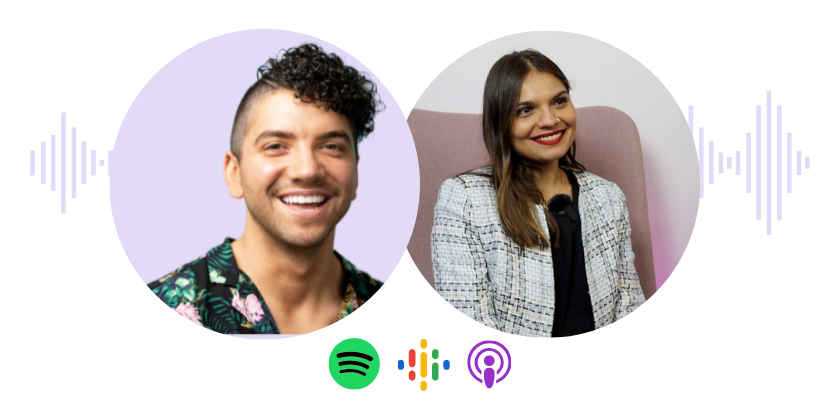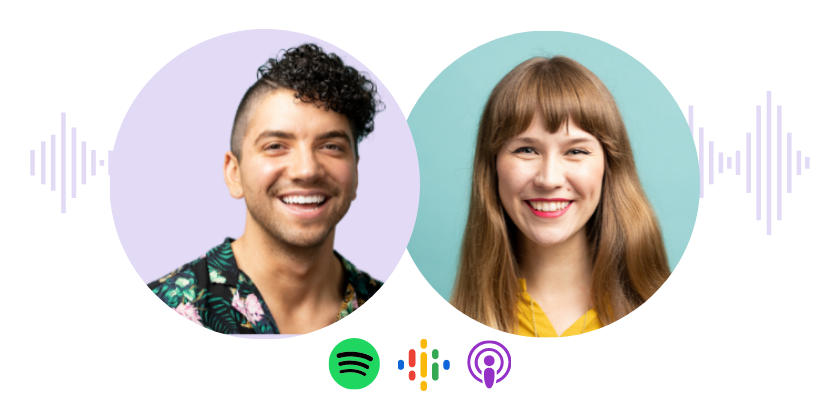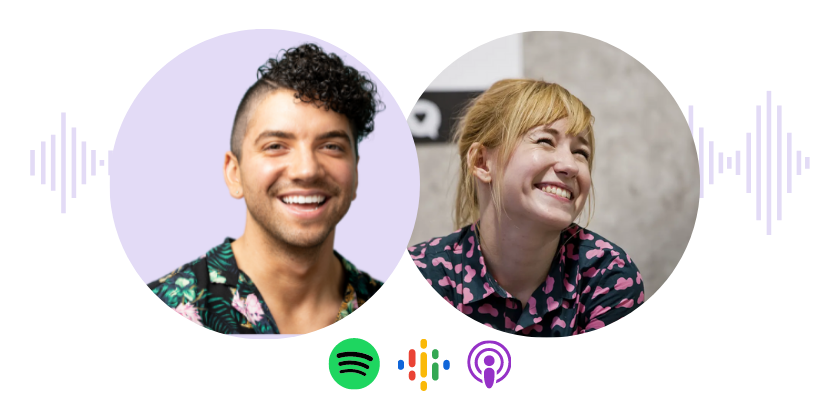Kids, Computers, and Early Childhood in the UK - with Naomi Kerr
People often talk about pedagogy, but it's rarely actually defined.
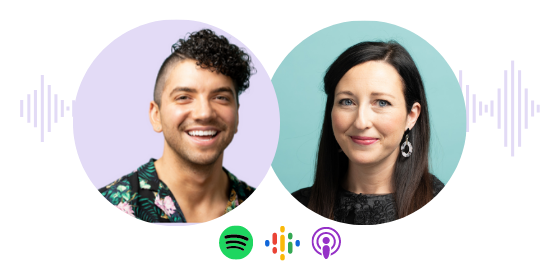
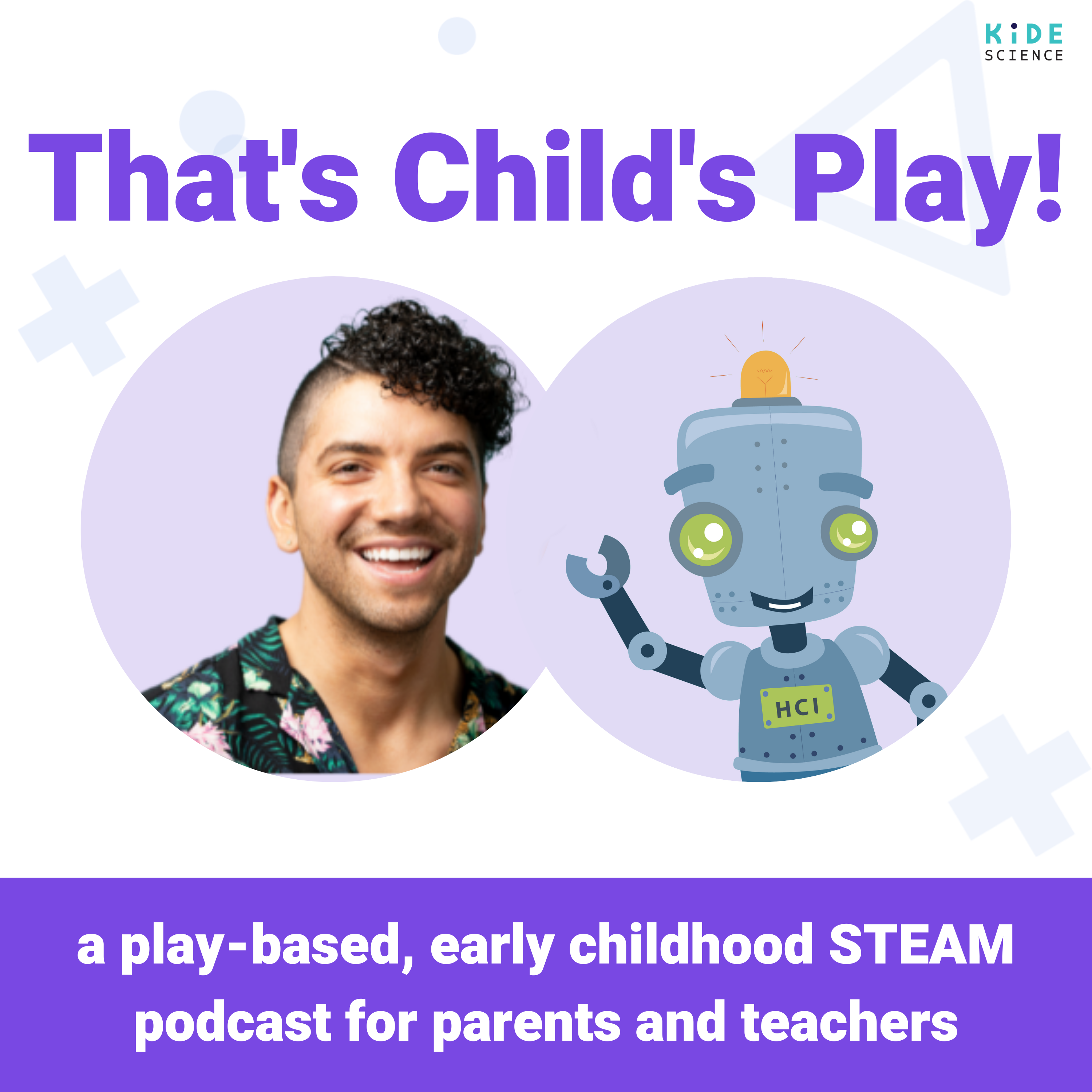
That's Child's Play!
This blog post was published to accompany an episode of Kide Science’s podcast, “That’s Child’s Play!” To hear more from our Pedagogical Developer Naomi Kerr, listen to the podcast directly on this page or wherever you listen to your podcasts.
What is Pedagogy?
It's often talked about, but not often defined.
We must admit, we are big nerds when it comes to pedagogy. Pedagogy informs every decision Kide Science makes, and we were actually founded based off of play-based, child-led pedagogy.
That being said: what is pedagogy?
According to Pedagogical Developer Naomi Kerr:
"Pedagogy, to me, is really understanding how a child learns and what they're excited by. It's creating plans, great strategies, and environments to support [a child's] learning styles." We agree, and that's why she's on our team!
Listen more to this topic here:
A great example of pedagogy is the playful STEAM education model we use at Kide Science. We use imaginary science scenarios as the basis of STEAM learning, combining hands-on, hearts-on, heads-on learning in a play-based environment.
Pedagogy isn't a one size fits all concept, though. People from different age groups, developmental phases, and the type of concepts being taught can all have effects on what pedagogy is useful, and where.
When asked about pedagogy in Finland (where Kide Science is located) and pedagogy in the UK (where Kerr is from), Kerr stated "teachers in the UK and teachers in Finland all have the same passion at heart and the same understanding of how children learn. They know that children have to do things actively. They know that children need to be enthused and excited about what they're learning, and they know that they need to make it purposeful."
This blog post was published to accompany an episode of Kide Science’s podcast, “That’s Child’s Play!” To hear more about creating compassionate human beings through play based learning and get the full conversation with Naomi Kerr, listen to the podcast directly on this page or wherever you listen to your podcasts.
A transcript of the episode (generated by AI, so there are mistakes!):
Kids, Computers, and Early Childhood in the UK
Antonio Santiago: [00:00:00] Education is always changing, always evolving. Whether it be because of new technologies, different governments, or just plain old funding. We know that no two education systems are the same. Hi, my name is Antonio Santiago, and you're listening to "That's Child's Play!" brought to you by Kide Science. In this episode, I'm talking to Naomi Kerr, she is a pedagogical developer at Kide Science and a former early childhood education teacher in the UK. we will discuss evolving education, education in the UK versus Finland, and what it really means to develop pedagogy
So without further ado, let's get into it. [music break]
Oh my gosh, Naomi, you're about to hate me. I [00:01:00] just realized that we were not recording. So, let's just consider that last few minutes the warmup
Naomi: I was enjoying it, so that's okay.
It's nice actually, because I didn't think we gonna end up talking about that, look folks, some things just don't go as planned. Enjoyed it. Yeah..
Antonio Santiago: Especially with live interviews. So. Let's start from the beginning.
Naomi: Hi, I'm Naomi Kerr I'm originally an early childhood education teacher from the UK. And I moved to Finland a-
Antonio Santiago: Full disclosure. Naomi is a co-worker turned friend of mine. She's new to Finland began her career in early childhood education. And her degree had a focus on ICT, which is information, communication, and technology
Naomi: but that has now shifted into computing in the curriculum. And then I moved and ended up teaching for over 10 years in a little primary school. up in Cumbria and there I became computing [00:02:00] specialist and I really found my absolute passion for the early years. Working with the nursery and the reception children there. And I really didn't want to ever move from that position. I loved working with that age of children.
Antonio Santiago: Yeah. So what made you love working with the little babies?
Naomi: I loved seeing how they changed over the course of just one year. I felt like they showed the most amounts of change, the way that they matured and settled into such a different environment than their home. I loved their crazy imaginations and their excitement over the smallest things it was catching. So then I became excited about the smallest little things. And I think in that curriculum, which is separate in the UK to the older curriculum. You can just be so much more creative. You went with the child's imagination, their drive for learning and their play. And that was the focus for our teaching, which just really suited my passion and my [00:03:00] interests.
Antonio Santiago: And Naomi, I hear ICT for ECE and I think, * * *. How do you teach something like that to young kids?
Naomi: So throughout the school we were looking at, bringing coding more into their learning. It's shifted heavily to involve coding and programming. And critical thinking. Which is quite a huge new topic for a lot of teachers. Quite overwhelming. , so it was good that I had done it on my degree. I also, took part in a research group with Lancaster university and other like-minded computing specialists. And we tested out all these different. Ways of doing coding in schools for such young children.
Making it simple enough for them, but also exciting and purposeful, I think to suit the way that the world is going. We used a lot of programs that are already set up to encourage coding. So they would have. Like jigsaw pieces to connect together that then made something happen. And the children love to do this. They love seeing how [00:04:00] something that they could. Play around with test retry made something else happen. They loved that gratification for what they were doing.
But also, we develop the skills of critical thinking. So problem, solving, breaking a problem down. Debugging checking retrying, all through really fun and practical methods. So even something as simple as making a chocolate crispy cake, we would turn that into a coding practice. So looking at how we had to do the steps in a certain order or making the steps really clear and specific. Making it really fun and purposeful. .
Antonio Santiago: Nice. So was the research that you did basically how to start teaching ICT to the little ones?
Naomi: We came together as a staff when we realized that there wasn't a lot of support for teachers out there, certainly they didn't seem to be in Cumbria anyway. We realize a lot of teachers have a lack of confidence in teaching this new curriculum of computing. So we tested out new schemes and new curriculums that were coming out to support teachers. [00:05:00] And we worked out which ones we would like to recommend as good. We also tested new computing products, like little robots or, raspberry PI.
Antonio Santiago: She's referring to a set of computers created specifically to teach computer science in the UK. Not the delicious tart dessert
Naomi: We. Also developed a training and run conferences for teachers to come to, so that we could show them new ideas. I did a specific one for early years as well. Showing how, even at that really engaged, you can start bringing in some of that vocabulary and some of the practices to show that children. Need to test all the way through their lives, need to practice and try things out. I think it was really well received. And I felt very valued. I felt like a lot of schools. Asked for our advice and asked for our input. I think it was really helpful to them.
Antonio Santiago: Let me try to explain it to those who like me are not professionals on rural UK geography. Cumbria is a region [00:06:00] in Northwest England. It's rural and has many farming communities. And Naomi lived in a little village near a little town with about a hundred people. It's kind of fantastic. That technology is being taught in such a rural community.
Naomi, how did computer science programs for early years even become a priority in a place like that?
Naomi: I think they realize that Cumbria. Was perhaps not. As. Embracing of the new technologies. They may be wearing the farming communities to help their farming, but perhaps because of the more rural nature teachers couldn't access. The resources or they didn't have the funding in the same way as some of the inner city. Larger populated cities had, but, I think that. They realized this. So they put together this support network in the Northwest, and then they use teachers to filter down that training and that learning so that it was just a fellow teacher. I didn't really claim to be this expert. I just could go to another school and suggest that they tried different things, but it was just more of a community [00:07:00] network. It was a real sharing and discussion and comfortable way of learning these new, quite daunting. Technologies and learning styles.
Antonio Santiago: That's really awesome and what kind of benefits do you think come from things like coding things like computer science and from technology as a whole
Naomi: I think if you take away all the language that they have to now learn like algorithm and decomposition and variables, if you take all of that away, I think that's important, but it's more the soft skills of problem solving, communication, collaboration testing. Breaking a problem down into parts. I think those skills. If computing makes those explicit for children. Great. But if we can show them that those skills help in all areas of their learning. I think that's, what's really important. I also think as well, that the way the world is today with your new applications, the gaming communities. I think that children are just automatically enthused [00:08:00] by that and excited by it. So if you can show the children, even at the age of six and seven, while if you learn this coding language, if you do this, if you become really practiced in problem solving, you can create these games. You're making their learning - the reason they go to school purposeful it's what they're already excited in. So let's get them there. Let's get them to be a gamer or a. YouTuber. If that's what they're excited by. Computing gets you there.
Antonio Santiago: Right now you're a pedagogical developer. I have a super super easy question what is pedagogy to you
Naomi: pedagogy to me is, really understanding how a child learns what they're excited by, what helps them to progress in their understanding of things. And. Being able to support the children. So being able to come up with really. Great strategies, planning [00:09:00] lessons, environments, to support those different learning styles.
Antonio Santiago: Now that we have the definition, what is pedagogical development and how do you even land at that kind of job?
Naomi: I've never come across this role in the UK. Maybe it's there, but I feel really lucky to have. Found this role here in Finland and it's being able to. Support fellow teachers. And then indirectly really helping children to develop their scientific knowledge and skills. And learning. Through really exciting lessons, lesson planning. So far I've been helping to create content for. A teacher training platform where teachers can come and develop their understanding of scientific concepts so that they can then help children in their classrooms.
Antonio Santiago: you Haven't been here long, but have you found any big differences between pedagogy in Finland and in the UK?
Naomi: I think that it's carried out in different [00:10:00] ways, but I think that the people in the UK teachers in the UK and teachers here in Finland, All have the same. Passion at heart and all the same understanding of how children learn. They know that children need to do things actively. They know that children need to be enthused and excited about what they're learning and they know that. They need to. Make it purposeful so I think they're both. Both countries are very similar on that front.
I think perhaps the way that. The education systems work is very different
Antonio Santiago: Is that why you left teaching in the UK to be here in Finland?
Naomi: I think because of the lockdown and COVID, I think that's really put a shift on teachers, certainly in the UK. It changed the way we have to teach, in a big way. I've been teaching for a long time and I really love it, but I think just personally, I was ready for a challenge and a change. But I wasn't interested in just moving up the ladder of management into, Looking after a whole school or a whole. Becoming a [00:11:00] deputy head. I wasn't interested in that. I still really enjoy. The passion of teaching and being with the children. So I think I was looking for something. A little bit of a sidestep, so still in education, still with children at the heart of it. . I felt like this was the perfect way of still keeping my foot in the water of teaching, but also supporting the teachers.
Antonio Santiago: So you're a teacher for over 12 years. Did you find anything different from when you started teaching towards the end of teaching?
Naomi: I think that certainly in the UK education goes around in cycles of what. Teachers are encouraged to teach so at some points in my career, teaching was going back to expecting the children to learn lots of facts, rote learning. And then it would do a little shift again, and it would be back trying to encourage you to do more active, child led learning. And I think that's happening right now in the UK, certainly in the early years, There's a new curriculum that starting in September, and it's really trying to get back [00:12:00] to the teachers, stepping away, letting the children lead their learning, lead their play. And,
I think that's really great.
Antonio Santiago: All right. So this is probably a bit of an obvious answer, but what is influencing these changes? What is the shift that whoever is making decisions is saying. Okay. More rote memorization too. Okay. More play. Okay. More rote.
Naomi: Government.
Antonio Santiago: So like who's leading at the time?
Naomi: I think so. Yeah. And then it all depends on. The data coming out of schools. If say they have a bad couple of years of data,
Cause it's all very heavily assessed and graded in the UK. And if say there's a, cause you get it from year to year there's there might be just a dip in the data. It might just be the cohort of children or it might be other environmental factors, like the lockdown is going to have certainly an effect on children's. Development and learning. So then the government have to be seen to be doing something about it. So they'll think that they bring in a new policy or a new change to the curriculum to try and seem proactive.
Antonio Santiago: And we're in [00:13:00] the danger zone as far as subject matter here. So let's tread out of it together and talk about something we can all kind of agree on. That tests suck. What's the assessment situation in the UK, like right now.
Naomi: So before I left children would come into Early Years C hildhood into their setting. And they would play. And the teacher's role was to facilitate that play. Help them in that play. And then throughout the year, They would, formatively observe and assess. They would watch the children make notes and they would, keep track of their learning. And then at the end of that year, They would send off those results, but it was teacher observed it. Wasn't sit down and do this test. And that is staying. In September. But what they are doing is bringing in something called a baseline test.
Test probably isn't the right word. It's still done by observation of the teacher, but. Almost immediately when they enter that [00:14:00] classroom, they will be, observed and noted down where their learning is at that stage. And then that data will then forecast. Where they potentially should be. At the end of their school life at primary schools. So when they're 11. So that data is being used. And then my understanding is that the teachers still do the assessment and they observations at the end of their reception year.
To see how that child has progressed from the start of the year to the end. But it is done. In a very child-friendly. Observational way the children in that classroom should not know that they are being assessed. They should just think that teacher. Is playing alongside them, talking to them. And engaging with them. (Music Break) In talking to some amazing educators, the topic of teacher first learning versus. Learning first learning. Comes up quite often, actually. Teacher first being the teacher is worried about assessments and data and what they can report and what they are doing [00:15:00] and learning first, being worried about what the child is actually mentally gaining. How would you describe the UKs position?
I think early childhood has managed with the grip of its. Fingernails to keep it as children first. And there's a huge area of the curriculum for early years. That's called the characteristics of effective learning. And that is written into the curriculum for early years. So it's all those skills of learning. That teachers are observing for and looking for.
Naomi: And that's brilliant, I think, and I think it's something that teachers need to remember to continue doing all the time, because it's those skills like we were talking about with the computing skills, those soft skills that are so crucial. I can't say that those skills. Continue through the rest of the curriculum as much as we would like. I think because of the pressures of all the different areas of learning, the pressures of the data that needs to be collected for the older children.
The amount that's in the curriculum of knowledge that children need to [00:16:00] learn. I feel like then there's a real shift and teachers feel the pressure of having to plan, plan, plan, and assess plan and assess. Those skills get lost. It's not as much about the learning to learn. As the children get older.
Antonio Santiago: and as a mom of a kid who is now in the super early, early years, what have you noticed since moving to Finland?
Naomi: I think that there's obviously the logistical differences, so they don't go to school until they're seven here. They have preschool at six. I think there's a huge emphasis on outdoor and nature appreciation here, which I think UK is trying to bring in through forest school learning. And I know the early years curriculum is shifting to say things like understanding the natural world has been brought into this new curriculum. So I think, There's starting to be a lot more similarities between the two. I think that Finland just seems to have a lot more child centered. [00:17:00] Approaches. And I'm hoping that this new curriculum in the UK goes the same way and keeps it the same way.
Antonio Santiago: And your little ones, just two and a half. Is there anything that she's learning and nursery and also what kind of school does she go to?
Naomi: We've actually ended up choosing a Montessori school. Which I think I chose because it shares a lot of my. Passions and ethos for development. So it's looking at skills development, rather than learning knowledge. All the resources are set out for her to access. And to practice and use every day. And it's all things that she would use purposefully in her life. So she's practicing how to do folding, how to do pouring, how to do measuring. Just by scooping spoonfuls of sand. it's obviously a really simplistic level, but I really. Loved that culture. Very warm homely environment for her.
I think she, yeah, she seems very happy. And she spends a lot of the day outside, over two hours. Come rain [00:18:00] come shine. Come. Rain storm she's out there. But loving it and just all that gross motor development through using the park equipment and. Running and playing with her friends.
Antonio Santiago: This might sound like a contentious question, but I'm asking purely on a preference level, which school system would you prefer for her to grow up in the UK is or Finland's and I'm not asking which one is. Necessarily worse or something, just preference wise.
Naomi: I feel like I don't know yet, because I know the UK. System. . And. I know how. Effective. It can be. And I'm a big believer in the way that we teach phonics really creatively, which is helps them to read. I'm a really big believer in the way that we. Develop the children's skills at a younger age.
And I don't know enough yet about the Finnish system and how they would teach reading for example, or teach number. I think I'd be really, I'm going to sit on the fence here. I think as long as she's happy and she's [00:19:00] developing. I think I'd be really happy with either way so far of what I know. I genuinely don't have a preference at this stage.
Antonio Santiago: Completely understandable. , what is play-based learning in your words?
Naomi: My ideal play based learning would be that the children would be inspired by. Items around them or the environment. And then they would start to play with those items or ideas and they would go into role and dramatic play. And through that they would test out ideas. So if, for example, they find. A piece of litter on the ground and they. Think well that shouldn't be there. That's bad. And then they might go into role as being policeman and they're trying out those roles of what's right. And what's wrong through play. And then what I would love to see is the teacher stepping in there and perhaps. Playing alongside them to bring out more [00:20:00] vocabulary and teach them different words or, adding different perspectives in there. So it's still the child leading that play, but. Helped by the teacher. That would be my ideal play based learning.
Antonio Santiago: And we're definitely dancing around the topic of Kide Science here, especially because you brought up dramatic play and that's a huge pillar stone to our pedagogy. I really don't want this podcast to sound like an ad since we both work for them. But do you think something like Kide Science would work somewhere like the UK?
Naomi: I wouldn't say necessary. I don't think it's necessary because I think the teachers are doing an amazing job Teachers are already. Using a lot of the skills and teaching a lot of the skills that Kide Science also promotes, but I think. Kide Science just spits. So naturally by using it. They would be taking a lot of boxes. They would be really providing their children with a lot of areas of the curriculum, all in one go. So for the whole of the communication and the language chunk of the curriculum, it's all there [00:21:00] through reading the stories, talking about what's happening. Giving their ideas across. There's a part of the new curriculum that is really focusing on vocabulary. Children's speech and kid assigns really emphasizes the use of all those technical vocab words, even with the young children. And they love to use it. And an area of the curriculum that we always talk about in early childhood education in early years is the characteristics of effective learning. So all those playing and exploring skills, active learning, creating and thinking critically. They're there they run throughout.
But the stories and the problems here in Kide Science just lend themselves so perfectly to those skills. And we've also been discussing in the office about how the stories actually. Bringing forth, lots of talk about wellbeing as well. Children, when they're using our lessons. Talk so naturally about how our robot character is feeling. The characters are [00:22:00] feeling. Their wellbeing, which is such a huge topical push at the moment. Children's wellbeing. And I think that's such a natural part of our story telling at Kide Science that it's, it would just be perfect for teachers to use because. Yeah, it's all part of that. PSED curriculum.
Antonio Santiago: Yeah. There's so many people who might not feel comfortable teaching science because they don't necessarily have all the answers. I mean, thinking of something basic, like explaining how ice gets frozen, it's a series of molecular events, but the thing is I don't have to explain it to a kid. That's not the goal. And kind of throughout the key day science lessons, you're.
Constantly reminded of that, even though the explanations are offered, we give it to you. You really understand that that is not what the aim is.
Naomi: It's so supportive. There's the training there. That takes teachers through bit by bit, our process, but also just [00:23:00] really breaking down what the word measuring means and what you can do to help children measure and the same for. Conclusion the same for classification. A bit, like I was saying with the computing terminology, that actually that can sometimes seem so daunting for teachers that it doesn't stop them doing it, but it certainly makes them more hesitant about doing it. And I think if there's anything that. Can help teachers feel more comfortable. That then means their lessons become a lot more exciting and engaging for children. Then that's where we need to help.
Antonio Santiago: And why should young children learn about science, technology, engineering, art, and math. Or steam.
Naomi: I think it goes back to what I was saying about those critical thinking skills. That computing in the UK is trained to do. I think it's really crucial for children to understand that. Everything. Isn't just on a plate for them. It's not easy. They have to. Work hard at things. Problem solve. Keep on trying. I think that's really crucial. Especially with the way that, online [00:24:00] safety is going, they need to be able to evaluate what they see online in the world. I think those topical issues are a real, huge problem nowadays. So I think that. Kide Science helps them to do that because they have to work out what's real. What's not real. And test things out. And then all those other areas. So science, technology, engineering, arts, maths.
They're just bring that knowledge of the world that we all need to be able to. To navigate. The world today
Antonio Santiago: Naomi, thank you so much for coming onto the podcast. It's a pleasure to speak with you, and I'm really lucky to get to work with such a brilliant bunch of folks. Like you.
Naomi: Thank you for having me.
Antonio Santiago: And that's today's show y'all. If you liked what you heard, consider giving us a follow on Spotify or a review on apple podcasts or wherever you listen to your podcasts. We also have a blog and newsletter listed in the show notes with our social media and website. The blog will have a transcript for [00:25:00] those deaf or hard of hearing to be able to get the podcasts as well,
and if you're interested in learning more about Kide Science and play-based steam learning that blog is a good place to go to. Well,
thanks so much for listening to that's child's play. See you next time.
